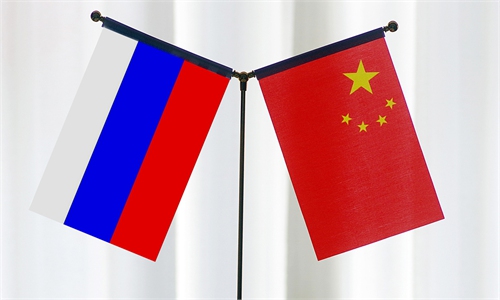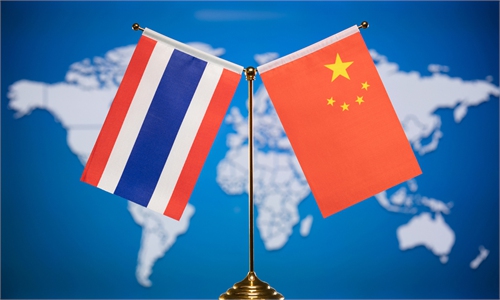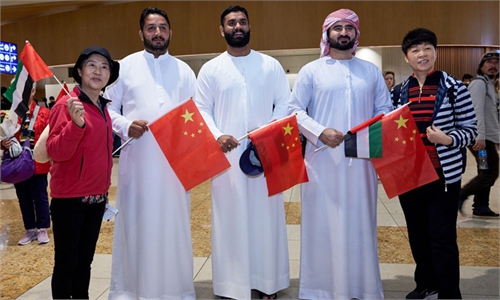China, Algeria to inherit, promote traditional friendship for 'better global governance'
BRI to continue benefiting North African region

Algerian President Abdelmadjid Tebboune arrived in Beijing on July 17, 2023. Photo: VCG
Algerian President Abdelmadjid Tebboune arrived in Beijing on Monday morning, starting his five-day state visit to China. The trip marks the Algerian leader's first visit to China since taking office in 2019. Chinese experts said the visit will develop bilateral ties to a higher level, and the China-proposed Belt and Road Initiative (BRI) will continue to benefit the North African region with more comprehensive cooperation projects.
China and Algeria have a profound traditional friendship. China is the first non-Arab country to recognize the interim government of Algeria, and Algeria had made outstanding contributions to the restoration of China's lawful seat in the United Nations, according to the website of the Chinese Foreign Ministry.
Liu Zhongmin, a professor at the Middle East Studies Institute of Shanghai International Studies University, told the Global Times on Monday, "Tebboune's visit is of great significance not only for China-Algeria relations but also forChina's overall relationship with the whole Arab world. In recent years, the most eye-catching news about China and Arab countries has normally been related to the Middle East, so Tebboune's visit proves that China has a balanced policy to deal with the whole Arab world that also covers the North African region."
Bilateral ties have been further promoted in recent years. "In 2014, Algeria and China established comprehensive strategic partnership, making Algeria the first Arab state to forge such a partnership with China," Chinese Foreign Ministry spokesperson Wang Wenbin said on Thursday during a regular press briefing.
Wang said that with deepening political mutual trust, the two sides have conducted fruitful practical cooperation within the framework of the BRI, maintained close communication and coordination on international and regional issues, and firmly safeguarded international equity and justice, as well as the common interests of developing countries.
Due to the damage caused by a series of chaotic incidents after the "Arab Spring," which was instigated and trumpeted by the West in the early 2010s, Algeria and many other African and Arab countries are still suffering serious economic and security problems, experts said. In addition to the impact of the COVID-19 pandemic and the Ukraine crisis, some problems are becoming increasingly severe, so they are seeking solutions from China by deepening, expanding and strengthening cooperation with China.
Ma Xiaolin, dean of the Institute for Studies on the Mediterranean Rim at Zhejiang International Studies University, told the Global Times on Monday that Algeria is a key partner of China in Africa that is jointly building the Belt and Road with China, and after the first China-Arab Summit in 2022, China would increase investment and input to boost the high-quality construction of the Belt and Road, so prospects for China-Algeria relations will be bright and full of potential.
Smail Debeche, president of the Algeria-China Friendship Association, said in an interview with the Xinhua News Agency on Monday that Tebboune "seeks to enhance the existing strategic partnership in various key sectors, including agriculture, food security, technology, renewable energy, infrastructure development such as roads and ports, exploration of raw materials, higher education and scientific research."
Debeche, who is also a professor of political sciences and international relations at the University of Algiers and member of the Central Committee of the National Liberation Front of Algeria, underlined the mutually beneficial outcomes of the BRI.
"This initiative facilitates direct trade... ultimately aims to establish win-win partnerships and foster infrastructure development, enabling participating countries to transition from import dependency to becoming producers in collaboration with Chinese companies," he said. As an example, he noted that countries, including Algeria, have moved beyond being mere importers of Chinese products and started producing these goods through cooperation with China.
The two countries will also deepen cooperation on better global governance. "Algeria shows great interest in joining the Shanghai Cooperation Organization and the BRICS cooperation mechanism, so in the fields of promoting global governance and building a fairer and more reasonable world order, Arab countries like Algeria would be China's key partners," Liu said.
In 1963, China sent its first medical aid team to Algeria, and in the past 60 years, China has sent 27 groups of medical personnel to aid Algeria, the earliest and biggest deployment of China's medical aid teams in Africa. This year marks the 60th anniversary of China sending medical aid teams to Algeria, a practice that has greatly shaped a solid friendship between not only the two governments but also the two peoples, according to the Chinese Embassy in Algeria.
Wang Yiwei, an international relations professor at the Renmin University of China, told the Global Times on Monday that many cooperation projects under the framework of BRI are at the strategic level, so stable and solid bilateral ties and people-to-people friendship are crucial to ensuring the sustainability of the cooperation.
"In addition, Algeria has trilateral cooperation with China and France. The North African country is a key 'third-party market' that China and France are jointly exploring, so it's also an important party for a stable China-France relationship. Algeria has a mature industrial foundation, and it's geographically close to France and French is also widely spoken in the country, so China has attached great importance to helping Algeria activate its potential and boosting China-France-Algeria trilateral cooperation," said Wang Yiwei.




